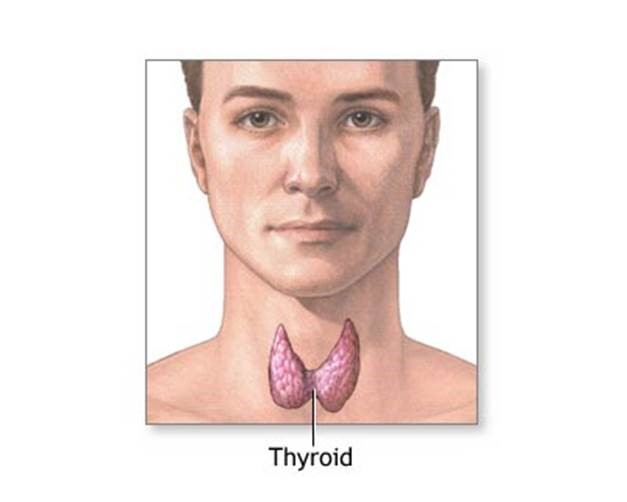Toxic nodular goiter
Contents
When to Contact a Medical Professional
Toxic nodular goiter involves an enlarged thyroid gland. The gland contains areas that have increased in size and formed nodules. One or more of these nodules produce too much thyroid hormone.

Toxic nodular goiter starts from an existing simple goiter. It occurs most often in older adults. Risk factors include being female and over 55 years old. This disorder is rare in children. Most people who devaelop it have had a goiter with nodules for many years.
Sometimes, people with toxic multinodular goiter will develop high thyroid levels for the first time. This mostly occurs after they take in a large amount of iodine through a vein (intravenously) or by mouth. The iodine may be used as contrast for a CT scan or heart catheterization. Taking medicines that contain iodine, such as amiodarone, may also lead to the disorder.
Symptoms are the same as those of an overactive thyroid gland (hyperthyroidism). However, the bulging eyeballs seen in Graves disease do not occur.
Symptoms may include any of the following:
· Fatigue
· Frequent bowel movements
· Heat intolerance
· Increased appetite
· Increased sweating
· Irregular menstrual period (in women)
· Muscle cramps
· Nervousness
· Restlessness
· Weight loss
A physical examination will show 1 or many nodules in the thyroid. There may be a rapid heart rate.
Other tests that may be done include:
· Serum thyroid hormone levels (T3, T4)
· Serum TSH (thyroid stimulating hormone)
· Thyroid uptake and scan or radioactive iodine uptake
· Thyroid ultrasound
Beta-blockers (propranolol) can control some of the symptoms of hyperthyroidism until thyroid hormone levels in the body are under control.
Certain drugs can block or change how the thyroid gland uses iodine. These drugs may be used to control the overactive thyroid gland in any of the following cases:
· Before surgery or radioiodine therapy occurs
· As a long term treatment
Radioiodine therapy may be used. Radioactive iodine is given by mouth. It then concentrates in the overactive thyroid tissue and causes damage. Some people, but not all, may need to take thyroid replacement afterwards.
Surgery to remove the thyroid may be done when:
· Very large goiter or a goiter is causing symptoms by blocking the airway
· Thyroid cancer is present
· Rapid treatment is needed
Toxic nodular goiter is mainly a disease of older adults, so other chronic health problems may affect the outcome of this condition. An older adult may be less able to tolerate the effect of the disease on the heart. However, the condition is often treatable with medicines.
Heart complications:
· Heart failure
· Irregular heartbeat (atrial fibrillation)
· Rapid heart rate
Other complications:
· Bone loss leading to osteoporosis
Thyroid crisis or storm is an acute worsening of hyperthyroidism symptoms. It may occur with infection or stress. Thyroid crisis may cause:
· Abdominal pain
· Decreased mental alertness
· Fever
People with this condition need to go to the hospital right away.
Complications of having a very large goiter may include difficulty breathing or swallowing. These complications are due to pressure on the airway passage (trachea) or esophagus, which lies behind the thyroid.
When to Contact a Medical Professional
Call your health care provider if you have symptoms of this disorder. Follow the provider's instructions for follow-up visits.
To prevent toxic nodular goiter, treat hyperthyroidism and simple goiter as your provider suggests.

